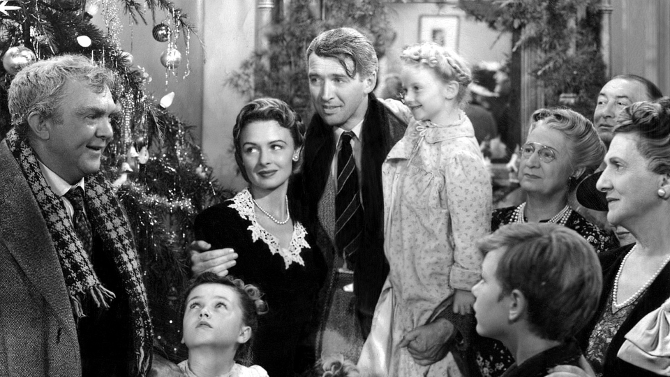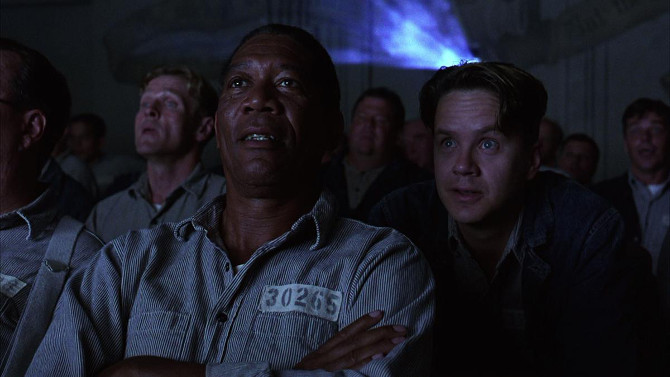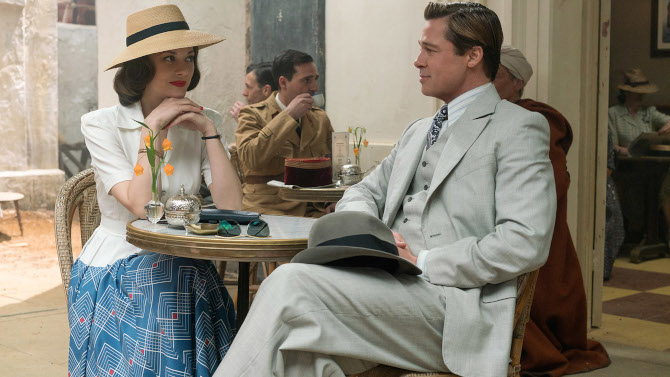
Déjà vu Dalliance
Channeling the mesmeric movies churned out by the studio system back in the 1930s and 40s, Allied (2016), directed by Robert Zemeckis, channels the likes of Morocco, Casablanca, Across the Pacific, Gilda, To Have and Have Not, and numerous others – attempting to find a spark from the classic themes of melodrama, romance, suspense and the epic nature of the annals of the cinematic past, with quite successful results. Set the year Casablanca and Across the Pacific were released – 1942, the story in fact starts in Morocco, with recently parachuted in Canadian spy Max Vatan (Brad Pitt) meeting up with another undercover agent, Marianne Beauséjour (Marion Cotillard), who will be pretending to be his wife.
-
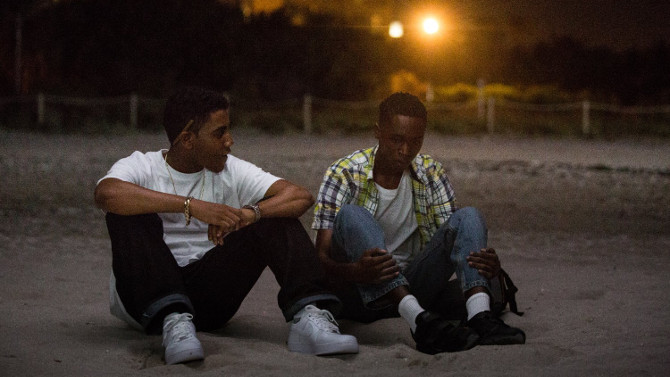
Moonlight Sonata
MoonlightJanuary 8, 2017Moonlight, one of the most lauded films of the year 2016, depicts a world that feels near inescapable. Set in an impoverished neighbourhood in Miami, our protagonist, a confused, introverted, gay African American boy named Chiron, is trapped in a world where his mother is a crack addict, his role model is the one selling the drugs to her, and he is brutally bullied for not fitting the mould. The film is broken up into three parts, ‘Little’, ‘Chiron’ and ‘Black’, each a name and iteration of the main character’s life. ‘Little’ (Alex Hibbert) is a shy young boy, introverted and different from those energetic, bombastic kids around him. His mother, Paula (Naomie Harris), is a verbally abusive single mother (though she has moments of maternal caring), stuck in an endless cycle of drug abuse. With no father at home, Little gravitates toward Juan (Mahershala Ali), as well as his girlfriend Teresa (Janelle Monáe). Juan is a drug dealer in charge of those selling on the street corners of the ghetto. A complex figure, he sees that the boy is different and truly wants to give him a hand up, yet is a huge part of the problem. Quiet moments of mentorship and advice abound, like when Little says he hates his mother. Juan, simply states "I bet you do. I hated my mom too. Miss her like hell now, though."
-
Star Pick with Sean Kenney
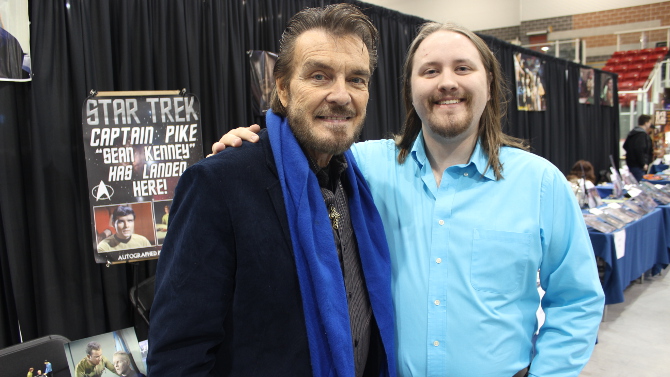 It’s a Wonderful Life is Heaven-SentIt's a Wonderful LifeDecember 23, 2016
It’s a Wonderful Life is Heaven-SentIt's a Wonderful LifeDecember 23, 2016It is hard to fathom that Frank Capra’s classic feature It’s a Wonderful Life turns 70 this year (on December 20th to be exact). A movie of vital importance to millions of people the world over, it has not only become a Christmas staple, but also a yuletide tradition for many a family, though this was not always the case. Getting off to a more than sluggish start (losing major money at the box office), it was not originally a hit (or believed by most critics that it would ever leave an impactful mark on the spools of film history). In a miracle befitting of the fantasy drama, the tides for the downtrodden film turned around in the 1970s (thanks to a fortunate copyright lapse), finding a more than accepting audience on the television screen. Taking off, it has gained the traction director Capra once had hoped for, for his story – though he never truly expected it to get a second chance. He actually said (to The Wall Street Journal in 1984): "It’s the damnedest thing I’ve ever seen. . .The film has a life of its own now and I can look at it like I had nothing to do with it. I’m like a parent whose kid grows up to be President. I’m proud. . . but it’s the kid who did the work. I didn’t even think of it as a Christmas story when I first ran across it. I just liked the idea."
-
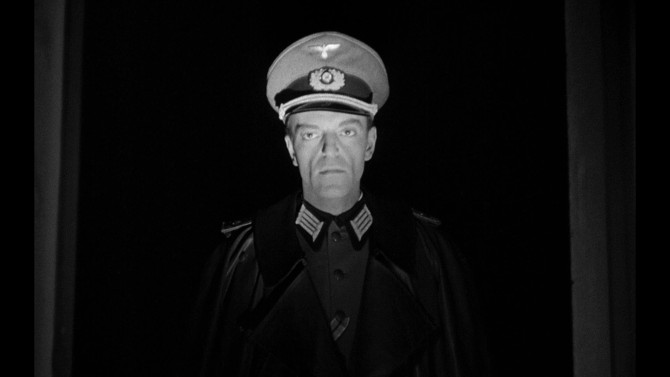
The Sound of Silence
Le Silence de la MerDecember 9, 2016Made with a surprisingly nuanced touch and a quiet grace by a first time filmmaker, Jean-Pierre Melville’s (Le Samouraï) 1949 drama Le Silence de la Mer is a philosophical study in how the lives of two individuals are affected when an occupying German soldier billets at their house, and, in turn, how living in their home changes him during World War II. Based upon Jean Bruller’s novel of the same name (which he published under the nom de plume Vercors), it became a symbol of resistance against the Nazi occupation of France (Melville himself was a part of the French Resistance, as was Bruller). As an interesting sidenote, Bruller discovered that Melville was planning on making the movie without the rights to his work. Meeting up with the filmmaker, he threatened to burn the negative if he did not like it, yet he allowed him to make the movie in his own home just outside of Paris. The pact was that Bruller would show his version to 24 former Resistance members and that they would have to unanimously give it their blessing (or Melville would burn the negative in front of the author). 23 of 24 voted in favour, the sole individual to go against the crowd did so not because he disagreed with the content of the film, but rather, how he found himself as part of the panel (as a last minute substitute – which offended him). Melville won out and Le Silence de la Mer became a huge hit in France.
-
Star Pick with Tyler Murree
 Catch a Rising StarThe Shawshank RedemptionNovember 25, 2016
Catch a Rising StarThe Shawshank RedemptionNovember 25, 2016Cornwall’s second most famous actor, Tyler Murree, is proud to hold that title, following behind some guy by the name of Ryan Gosling. Recently, he spoke of his childhood dream that one day he would be able to watch one of his films on the big screen at the historic Port Theatre in his hometown of Cornwall, Ontario. An actor of the stage and small screen, Murree has had a solid career in the two realms. The man has graced the stage as part of both large Toronto productions and glorious Broadway ensembles. He took on roles in Les Misérables; The Lord of the Rings: The Musical; Dirty Dancing; The Lion King, and other such productions. Placing him in front of hundreds of thousands of people across North America, the performer has created unique characters in the truest form of acting. Similarly, Murree has dabbled in the world of television. He has had parts on quality BBC productions in Orphan Black and Copper, while also popping in on Canadian productions such as Murdoch Mysteries and Kim’s Convenience, as well as taking on roles in several Nickelodeon series, including Make It Pop and The Other Kingdom, to name but two.
-
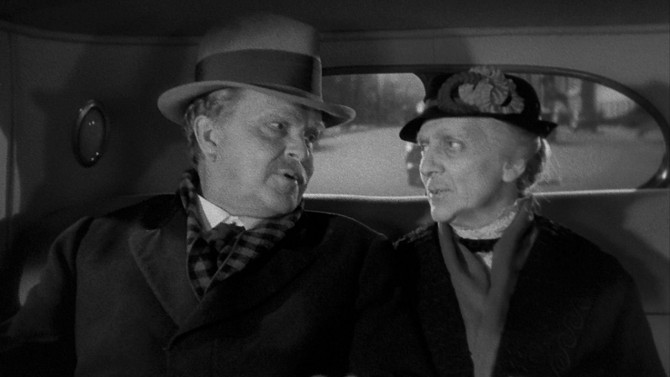
Here Today, Gone Tomorrow
Make Way for TomorrowNovember 11, 2016Upon winning Best Director at the Academy Awards for his 1937 screwball comedy The Awful Truth (the highest grossing film of the year), Leo McCarey took his Oscar, turned to the applauding crowd and uttered the unusual acceptance of "I want to thank the Academy for this wonderful award . . . but you gave it to me for the wrong picture". The movie he was talking about was the powerfully emotional drama Make Way for Tomorrow. A bust at the box office, the film still brought recognition to one of the premier filmmakers of the era. Being a favourite of John Ford, Frank Capra, Jean Renoir, Ernst Lubitsch, George Bernard Shaw and Orson Welles (who called it one of the saddest films ever, claiming that "it would even make a stone cry"), as well as being the inspiration behind Yasujirô Ozu’s classic 1953 picture Tokyo Story, this is a pure piece of emotional film making. Funnily enough, though praised by iconic filmmakers and ardent film fanatics alike, it is probably one of the least known motion pictures out there. Nearly unseen, thankfully Criterion has released it, providing the movie with an avenue to finally reach a larger audience.
-
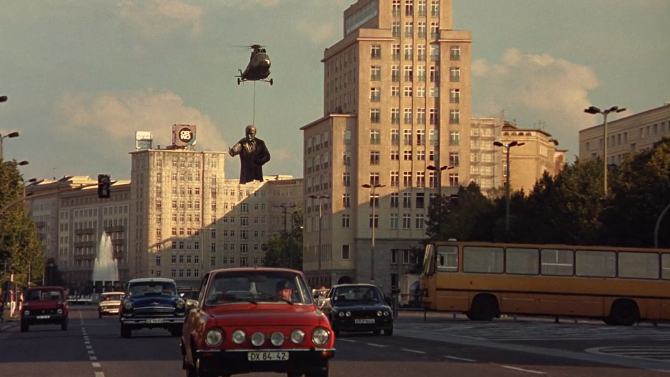
“Mr. Gorbachev – Tear Down This Wall”
Good Bye Lenin!November 6, 2016It would be hard not to argue that the fall of the Berlin Wall was one of the most iconic moments of the last thirty years. Dividing families, separating a city, forming a chasm between the Western and Eastern world; the Berlin Wall was a symbol of the borders that we, as humans, put in our own way, blocking us from achieving unity and peace. The fall of the wall was an empowering and supremely positive event, and Wolfgang Becker’s 2003 film Good Bye Lenin! is a heartfelt motion picture that builds an intriguing family centred story around the iconic happening. Narrated by Alex (Daniel Brühl), a twenty-something who lives in Berlin on the east side of the wall, he transports us through a tumultuous year in his family’s life. With a father that fled to the West without his wife and children, Alex has grown up with a mother, Christiane (Katrin Saß), who has become married to the Socialist Fatherland. An idealist and ardent patriot, she is enamoured with the system that she lives within. Alex’s older sister, the quirky Ariane (Maria Simon) also lives with them (she has an infant daughter).

